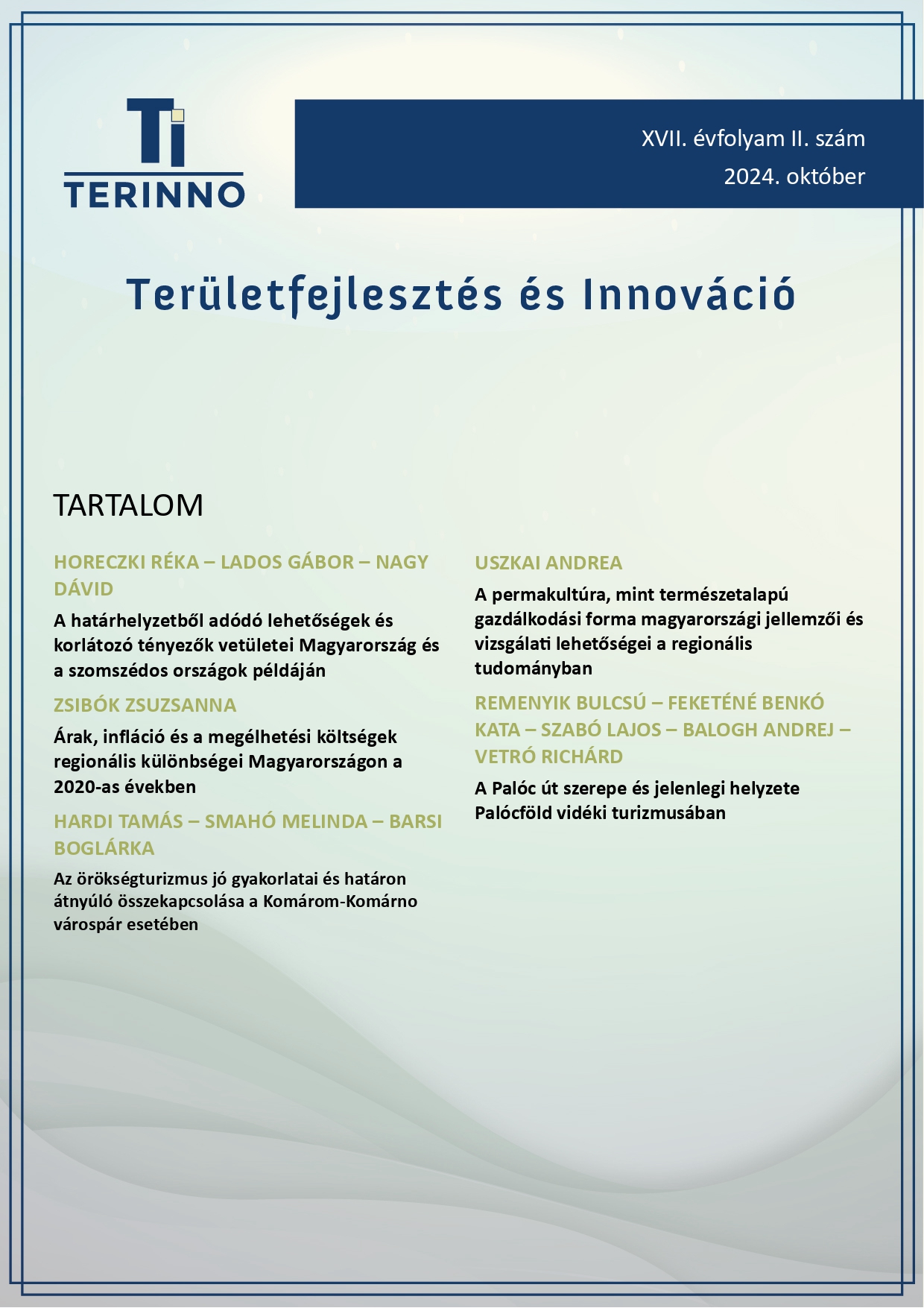The opportunities and barriers of the border situation in Hungary and its neighbouring countries
DOI:
https://doi.org/10.15170/terinno.2024.17.02.01Keywords:
border, border area, Hungary, Eurobarometer, cooperationAbstract
In the European Union's development policy, cross-border cooperation plays a key role, where the actors involved can range from border towns and regions to European territorial partnerships or even Euroregions. In the integration process, the role of borders is becoming increasingly obscured, with the strengthening of border regions alongside nation states. Democratic local and regional structures, as well as local and regional cooperations with common interests along borders, further deepen the decentralisation process. EU financial support has significantly facilitated the establishment and maintenance of institutionalised cross-border cooperation. However, a negative effect of the funding process can also be observed: the partnerships established during the period of the funded projects are weakened and disappear as the funds are exhausted. The study was motivated by two questions: what factors can lead to cooperation and what factors can lead to the loss of interest? The development of strategic partnerships is strongly linked to individuals, key institutions, their willingness to work together, their network of contacts and their intrinsic motivations. Can a shared historical heritage on the Hungarian border facilitate cooperation?
To gain a better understanding of regional and municipal cooperation in Hungary and its neighbouring countries, the study presents the results of a Eurobarometer survey conducted in 2015 and a questionnaire survey in 2018. In the surveys, the population was asked about cross-border and municipal cooperation, willingness to cooperate and the activity of contacts. The presentation of the attitudes towards cooperation in border areas aims to answer the question of which border areas of Hungary are the most active in these relations and the reasons behind these processes.

